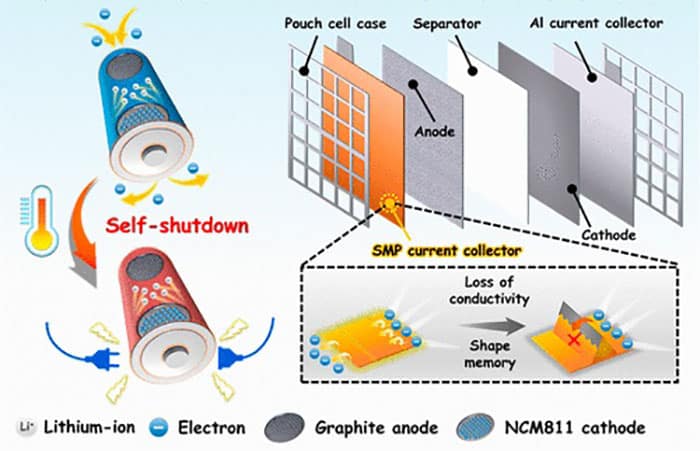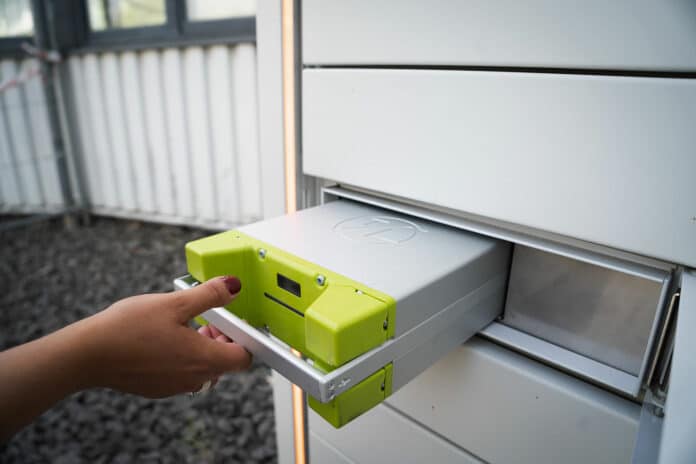Lithium-ion batteries are a popular choice of rechargeable battery for use in many applications like portable electronics, electric vehicles, small and large applications, and energy storage systems, thanks to a large amount of energy they can store in small spaces. However, fire and explosion would probably occur when the battery is encountered with overheating, at which the shrinking of the separator routinely causes an internal short circuit.
To address this problem, a team of researchers from China has offered a possible solution with a new technology that can swiftly put the brakes on a Li-ion battery, shutting the battery down when it gets too hot.
When multiple Li-ion cells are chained together – such as in electric vehicles – thermal runaway can spread from one unit to the next, resulting in a very large, hard-to-fight fire. So researchers wanted to create a Li-ion battery that could shut itself down quickly but also work just as well as existing technologies.

For the new research, the researchers used a thermally-responsive shape memory polymer covered with a conductive copper spray to create a material that would transmit electrons most of the time but switch to being an insulator when heated excessively.
At temperatures lower than 90 °C, a microscopic, 3D pattern programmed into the polymer appeared, breaking apart the copper layer and stopping the flow of electrons. This permanently shut down the cell but prevented a potential fire. At this temperature, however, traditional cells kept running, putting them at risk of thermal runaway if they became hot again.
Under regular operating temperatures, the battery with the new polymer maintained a high conductivity, low resistivity, and similar cycling lifetime to a traditional battery cell. The researchers say that this technology could make Li-ion batteries safer without having to sacrifice their performance.
Journal reference:
- Jichen Jia, Hao Liu, Shenglong Liao, Kai Liu, Yapei Wang. Early Braking of Overwarmed Lithium-Ion Batteries by Shape-Memorized Current Collectors. Nano Letters, 2022; DOI: 10.1021/acs.nanolett.2c03645
